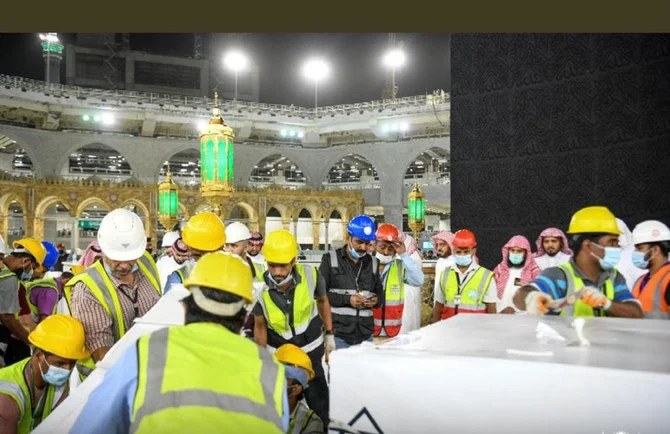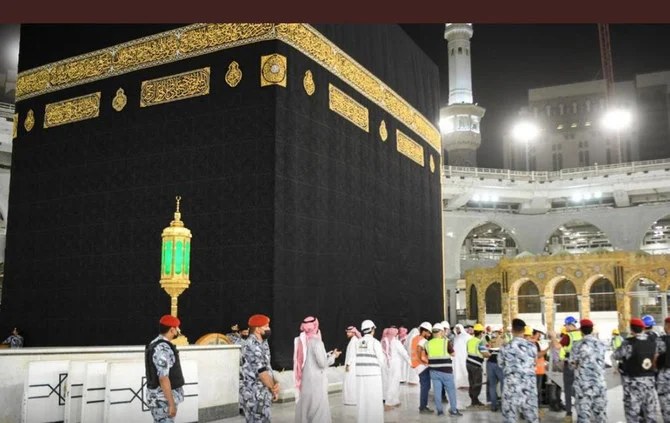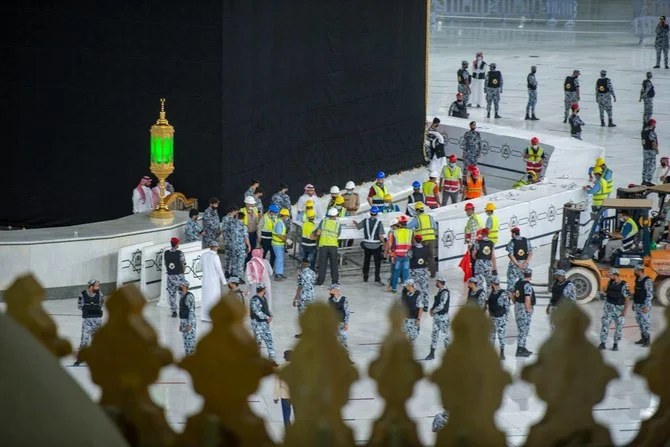JEDDAH: Saudi Arabia has decided after two years to remove the preventive barriers around the Holy Kaaba, allowing worshippers to once more touch the house of Allah.
Sheikh Dr. Abdulrahman Al-Sudais, who leads the General Presidency for the Affairs of the Two Holy Mosques, announced the decision on Tuesday.
The barriers were installed to ensure social distancing between pilgrims.
The area surrounding the Kaaba, where pilgrims circumambulate seven times, was closed in March 2020 for sterilization as a preventive measure to contain the spread of coronavirus.
Al-Sudais said that this decision showed the care the Saudi leadership took for visitors to the Grand Mosque and its devotion to facilitating their rituals in a safe and spiritual atmosphere, given the huge number of visitors that the mosque had begun to witness with the start of the Umrah season.
He said the presidency was cooperating with all sectors operating in the Grand Mosque to receive pilgrims and provide all necessary services, in line with the aspirations of the Kingdom’s leadership.
He extended his gratitude to King Salman and Crown Prince Mohammed bin Salman for their care, attention, and support for the Two Holy Mosques. He prayed to Allah to bless them for their good deeds.
The General Presidency for the Affairs of the Two Holy Mosques said it had begun preparations to provide services early on, in line with crowd management plans, and prepared the Grand Mosque in Makkah and its courtyards to facilitate Umrah rituals for pilgrims with ease and tranquillity.


























